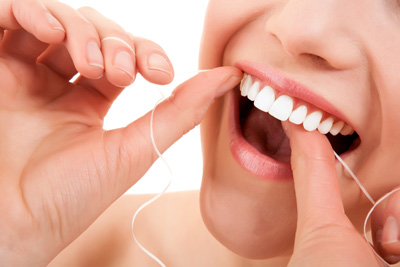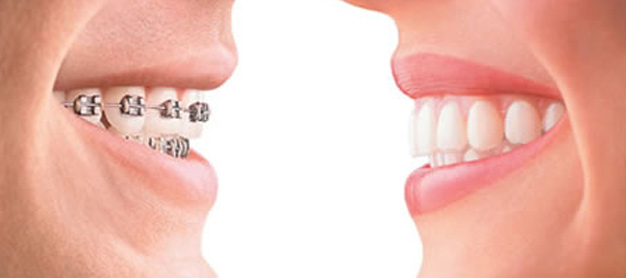The trust of the matter is most of us dread visiting the dentist. I’m pretty sure many people have some painful memories involving the dentist’s chair. And for this reason not many people go to see the dentist as often as they need to. Subsequently we start to make up certain myths which are not completely true, just to make ourselves feel better about our dental hygiene and avoid that dreaded dentist visit.
This post shall now attempt to debunk some of these myths
Bleeding Gums are Normal
Bleeding gums may be harmless, but they may also be a sign of a serious problem, such as periodontal (gum) disease. If you notice your gums are red, swollen or bleeding while brushing or flossing, try and see a dentist as soon as possible. Only a qualified dentist can determine whether the bleeding is harmless or an indication of a serious problem.

Flossing Is Not Important
Flossing is an extra step many of us tend to skip after brushing our teeth but this can lead to the build-up of bacteria.While brushing is essential for eliminating food debris and plaque, there are some areas of the teeth that are simply too small for your toothbrush to reach. This is where flossing comes in. Flossing around each tooth and the gums can remove stubborn plaque and food particles that, if left in the mouth, can lead to cavities or decay. When you do not you miss cleaning almost 33% of your tooth surfaces that regular brushing can’t reach. Bacteria in those hard to reach places can cause gum disease, decay, and pain. Flossing is cheap, easy, and essential to oral health.
Dental Hygiene Affects Only Your Mouth
Oral health is closely linked to your overall health. Individuals with gum disease have an increased risk of developing certain health conditions. Gum disease is caused by bacterial growth in the mouth. If left untreated, the bacteria can reach the bloodstream or airway and lead to serious health conditions and may even be fatal.
Whiter Teeth are Healthier Teeth
Your teeth may be white but this cannot show if there is an infection or cavities between the teeth. Pure white teeth do not equate to healthier teeth, although they should be on the whiter side. The natural color of teeth vary from one person to another where people with healthy teeth could have darker teeth than the next person. Even the whitest teeth are subject to cavities or decay. Additionally, many dental problems show no early symptoms. This is why routine dental checkups with your dentist are important. A dentist can thoroughly check your teeth, gums and mouths for any underlying dental concerns. By identifying and treating dental problems early, you will increase your chances of maintaining beautiful and healthy teeth.
Brushing Your Bleeding Gums Is Bad
Brushing is not only good on teeth, but also on your gums and tongue. Brushing these areas helps get rid of plaque which is what causes inflammation, gingivitis, and eventually gum disease. This plaque can cause the gums to become inflamed and bleed if it is not removed. Be sure not to brush too hard if you have sensitive gums. Also it is recommended to brush at an angle in order to avoid irritation of the gums. Brushing and flossing the surrounding areas will help keep the gum tissue clean.

Braces are for kids only
Although orthodontic treatment is more popular with children (and often more successful), all hope is not lost for adults who would like to straighten their teeth and help improve their smile. More and remore adults are getting braces now and even though the treatment may take a little longer than it does in children, it’s still worth a try.
If my teeth look fine and there’s no pain, I don’t have to see a dentist
How often you service your car depends on its age, its mileage and the manufacturer’s recommendations. Your teeth are the same. It’s wise to visit your dental team regularly even if you are not experiencing any problems with your mouth or teeth. Attending regularly helps you and your dentist, dental hygienist or dental therapist keep your teeth and gums healthy and pain-free. They will understand your needs and will recommend how often you visit based on their assessment.
Hopefully now you’re somewhat convinced that you need to pay your dentist a visit even if you don’t feel like anything is wrong, let the professional have a look and make a proper assessment. Always remember that prevention is better than cure and regular check ups will save you from the pain we all dread.






